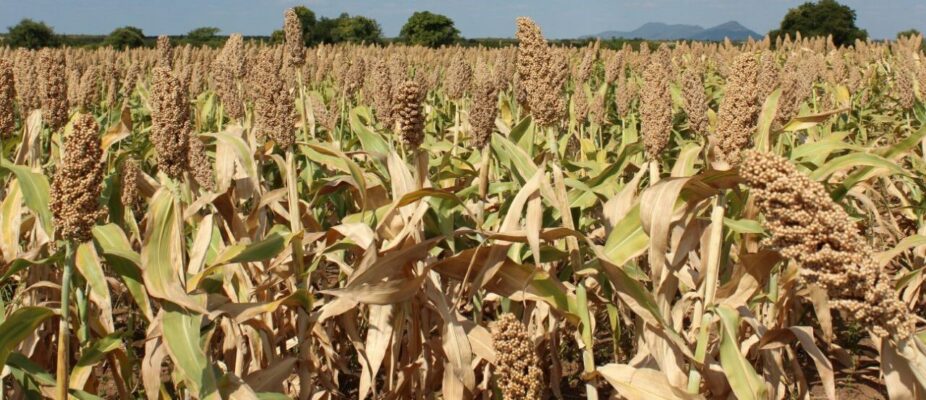Nqobile Bhebhe,Zimbabwe
Government officials in Zimbabwe are queuing up and calling on farmers to urgently shift to small grain production against the backdrop of impending drought due to poor rains.
Over the years, there have been repeated calls from Government and a range of aid agencies for farmers in dry areas to plant small grains.
However, agricultural experts say attitude still remains one of the biggest barrier to the adoption of small grains in drought-prone parts of the country.
Officials say according to previous rain fall pattern forecast, 200mm of rainfall was expected in January and part of February.
However, between 14mm and 22mm was received, hence the need to shift to small grain production.
Officiating at the World Wetland Day commemorations, Oppah Muchinguri-Kashiri who is the Environment, Water and Climate Minister said small grain farming should be considered seriously.
According to the minister, drought is looming in Zimbabwe.
“The truth of the matter is we are headed for some drought” she said as quoted by state media. “I urge farmers who rely on rainfall for their crops to consider small grains like beans.”
“We were expecting this January (last month) to receive 200mm of rainfall, but some areas got 14mm, while others got 22mm.
“We are now into February and things are not looking up and therefore the need for farmers to consider small grains.”
Small grains comprise of sorghum, pearl and finger millet and are ranked as second staple cereal crops after maize in Zimbabwe.
They are tropically adapted plants with high water use efficiency due to their structural characteristics that reduces water transpiration.
Agricultural experts blame the poor adoption of small grains by farmers on the lack of an agricultural policy.
In 2017, the Senate Thematic Committee on Peace and Security heard that lack of an agricultural policy was a major issue underpinning low productivity of these small grains.
“We submit that there is no clear cut policy of promoting small grains production among the small holder farmers in semi-arid areas where they are thought to have a comparative advantage over maize.” Zimbabwe Farmers Union (ZFU) director Paul Zakariya told the committee then.
Various agriculture research institutes have also highlighted that most rural farmers have not heeded calls to opt small grains.
Some farmers complain that they cannot access small grain seeds in shops around the country.
In Zimbabwe, small grains are mostly used at household levels.
Production of small grains in 1988 when the country produced 450,000 tons, which as at 2014 had fallen by 50 percent to 225,000 tons.
According to ZFU, during the 2016/17 season 288,000 tonnes of small grains up from 76,000 tons produced in 2014/15 was expected.








